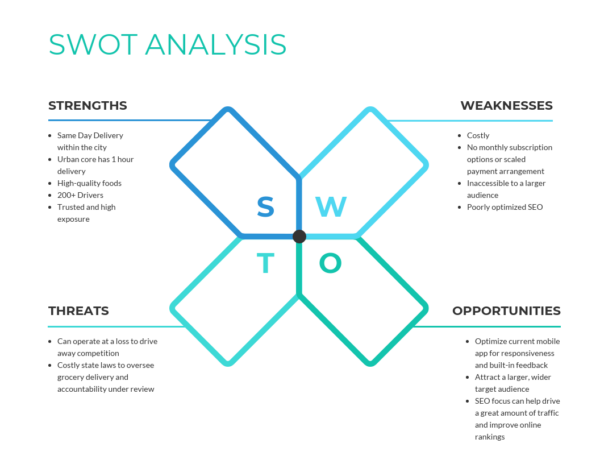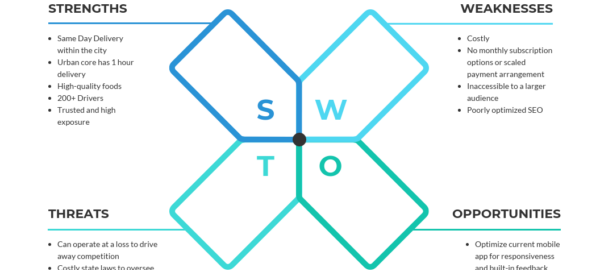
geralt / Pixabay
If you work in business, marketing, or project planning there’s a good chance you’ve conducted a SWOT Analysis. The classic four-way evaluation technique asks you to identify “Strengths, Weaknesses, Opportunities, and Threats” to your project or product.
But have you ever considered conducting a personal SWOT analysis?
If you want to be a good leader, you should be SWOTing yourself on a regular basis.
A personal SWOT analysis is where you take the same SWOT evaluation formula, and apply it to yourself. Conducting a personal SWOT is a particularly good idea when you’re embarking on any new journey or challenge like a career change, or launching a business.
Being aware of potential weaknesses in yourself can be invaluable knowledge, and help you properly prepare for any eventuality. But it can be a daunting task to lay all of your personal weaknesses on the line. By following a SWOT Analysis template, and writing things in a clinical and detached way, you can reframe how you approach the task.

Conducting a personal SWOT is also a good way of taking stock of your natural strengths, and taking a step back to appreciate the qualities you can bring to a role or project that you should make the effort to highlight. Too often when job hunting it’s easy to be bogged down by the qualities you don’t possess that it’s worthwhile conducting a SWOT to reaffirm your positive strengths.
In a personal SWOT analysis, the framing of “threats” and “opportunities”. A personal “threat” might not be competitors in the market, or a change of industry direction, but things such as “a lack of business finances” or “an upcoming relocation”. Personal threats may also include skills becoming outdated, or not staying up to date with your network.
Similarly, “opportunities” should be about areas in which you can personally grow. Is there an opportunity for you to take a course or learn a new skill? Is there a niche in your market that you could capitalize on?
Some questions you can ask yourself when conducting a personal SWOT analysis are:
- How you can continue to develop your strengths?
- How you can improve your weaknesses, what procedures can be put in place, or training can you undertake to help with this?
- Also think about how you can leverage your strengths to take advantage of the opportunities you’ve listed.
- Can your strengths be used to tackle any threats?
- What about your weaknesses, will they hold you back from pursuing the opportunities?
- Will your weaknesses further disadvantage you when it comes to your threat list?
A personal SWOT analysis isn’t a “once and done” document. You should regularly review your SWOT analysis, on either a formal and planned basis, or on an ad hoc basis when you learn new skills. You may want to incorporate a SWOT Analysis into any yearly or quarterly personal reviews you do.
It’s also important to recognize that a SWOT analysis isn’t the end of your self evaluation. There’s no point listing your opportunities and weaknesses if you don’t make a plan to work on them.
After creating your SWOT you should develop an action plan (you can repurpose a project plan template for this), or a timeline of exactly how and when you plan to counter the weaknesses you’ve laid out, as well as how you plan to take advantage of the opportunities you’ve identified.
Being brutally honest about yourself is difficult, but it’s worthwhile.
Business & Finance Articles on Business 2 Community
(57)







